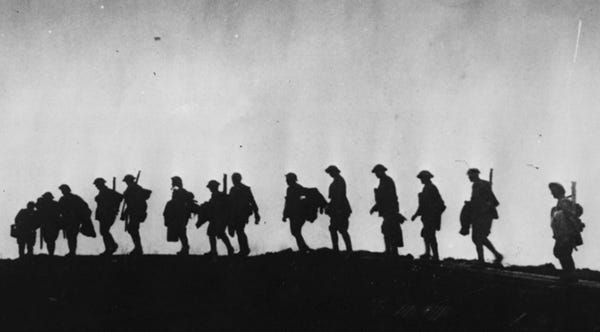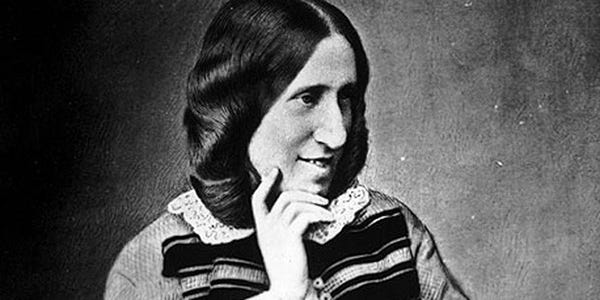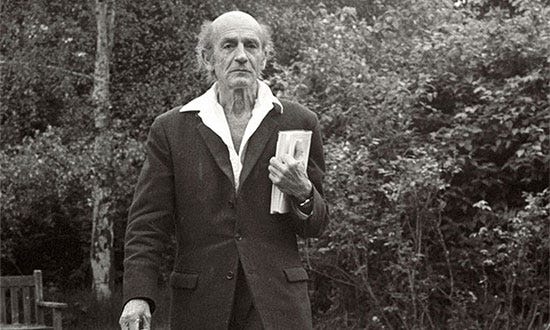Why Terry Pratchett is not Great Literature
The wonders of literary snobbery...
A few years ago Jonathan Jones wrote an article in The Guardian in which he stated that he had never read Terry Pratchett and had no intention of doing so because the discworld novels lacked literary merit, unlike Jane Austen’s books. It had all the hallmarks of a throwaway space filler deliberately designed to whip up controversy and the internet promptly obliged. Yet in many ways Jones’ opinion is strangely out of date, harking back to a time when the divide between Great Literature and Popular Genre Rubbish was more pronounced and science fiction writers and readers almost rejoiced in the endless contempt directed at them by the Establishment. In this post-modern world the Establishment itself is shot through with science fiction and fantasy tropes, mainly because the geeks and fans of the 70s grew up, went to work in Media and Publishing, and became the trend-setters instead of lurkers on the reviled fringe.
But Jones’ article also raises the question What is Great Literature, and how do we identify it? In many ways the glibbest answer is also the correct one – just go and have a look at the Classics corner in any major bookstore and there you are. Yet Jones was clearly working to some criteria, though he was pretty vague on what it was, other than saying that “Great books become part of your experience. They enrich the very fabric of reality.” No doubt a lot of self-appointed literati nodded in agreement – and there lies the rub. This vacuous touchy-feely affirmation of one’s own sensitivity as a cultured reader underscores the whole way in which the edifice of Great Literature has been built up, largely through the teaching of English Literature in pre-1970s England.
English Literature started as a subject at the beginning of the 20th century, mainly in reaction to the horror of World War One. Both religion and science had clearly failed to prevent the descent into barbarism that had overwhelmed the world in 1914, and so many writers and critics turned to English Literature as a possible civilising force for future good. By studying the classics we could become sensitive moral beings less inclined to mow each other down with Gatling Guns. Apart from the inconvenience of 1939-1945 (where it was pretty conclusively proved that a sensitivity to Great Art didn’t preclude one from acts of appalling evil) this project concluded with the publication of The Great Tradition, by the critic F. R. Leavis – a book listing the essential canon of Great Novels from Defoe onwards. When I studied the history of the English novel as part of my BA in Eng. Lit. during the early 1980s, Leavis’s choice of worthy books formed the bulk of the reading list and every work was approached on more or less the same lines i.e. –
“Great writers transcend history and show us the essential truths of the human condition. Let’s now read [insert author here] and find out how his/her ‘art’ presents these truths (and thereby confirm our own critical skill and sensitivity).”
This was the basis of Jonathan Jones’ attitude to Austen vs Pratchett, and that of just about every other critic who subscribes to the Great Literature myth. But it doesn’t take much scratching at the surface to reveal a whole bunch of issues with this approach:
1) Every book is treated like a puzzle. The author has hidden a secret message (the ‘truth’) and it’s down to the clever critic to hunt through all the words to find it out. Books simply become glorified riddles. Rich and complex narratives end up boiled down to a few trite moral homilies.
2) Very few people can actually say what the Eternal Truths of the Human Condition are. Is it ‘that man you fell in love with and married is really a colossal prat’ (George Eliot)? ‘People marry for money’ (Jane Austen)? ‘That man you fell in love with and tried to marry is a colossal prat who’s locked his wife in the attic’ (Charlotte Bronte)? ‘Innocent Americans had better not go to corrupt Europe’ (Henry James)? ‘Don’t go native’ (Joseph Conrad)? ‘Wash strawberries you’ve bought off the street in Italy before you eat them’ (Thomas Mann)? If these are the Eternal Truths of the Human Condition then they are little more than remarkably banal advice column platitudes.
3) The Great Tradition is staggeringly narrow. Not only is it limited to a set of socially conservative writers focussing on personal and often very trivial themes (‘Emma’s let herself down by saying something a bit off to Miss Bates at the picnic’) but there’s an almost neurotic obsession with the need for ordered and precise structure and content. In Leavis’s case this led to some very odd and pernickety choices. Wuthering Heights was out because it wasn’t happy enough, compared to Jane Eyre’s ‘song of morning’. Charles Dickens’ frankly dull Hard Times was preferred to the brilliant rambling chaos of his other, far more interesting novels. Thousands of writers and books were utterly ignored. Gazillions of titles were published between 1700 and 1900 (the period of the rise of the novel) and yet Great Literature consists of a dozen or so writers and a handful of long-winded books about marriage, obscure debates about Anglican dogma and farming in the South of England.
Thankfully the Great Tradition and the kind of self-congratulatory closed-loop analysis it encouraged didn’t survive the influx of Marxist and Feminist theory that entered universities in the 1970s. Whatever the faults of new critical theory (and it was often just as guilty of throwing up the most bizarre ideas) you could no longer get away with treating a tiny bunch of books as the revered repository of some transcendental truth that only the clever critic could identify. Fatuous belle-lettrism, whereby the critic shows off his fine sensibilities by cooing over what he or she identifies as Great Literature, is now largely the province of reactionary journalism and deliberate snobbery. They’d rather crystallise a specific and very limited range of ‘literature’ in some undying and eternal canon than embrace the ever-changing and vividly alive universe of writing. Furthermore a good few authors they valorise were, in their time, dismissed as worthless trash fit only for women, servants and simpletons (Shakespeare, every female novel writer before 1850 etc etc).
I struggle with intellectual snobbery, I really do. I think we should follow Alan Moore and Lee Child’s advice and read anything and everything - Dostoyevsky, H. P. Lovecraft, Elena Ferrante, J. G. Ballard, Leigh Brackett. Lee Child and James Ellroy are brilliant writers who, in their thrillers, create art that is gripping and supremely well crafted. I find Ian McEwan pretentious and tedious. I’d extend this advice to all other forms of art as well. Andrei Tarkovsky’s Mirror is an astonishing piece of cinema. So is Mad Max: Fury Road. To my mind there is no qualitative difference between Purcell’s Dido and Aeneas and Hawkwind’s Space Ritual. They’re both brilliant. Limit yourself to a handful of nominated works of ‘great literature’ and you deny yourself 99.9% of human creativity. Furthermore, this decade’s so-called trash may well become next decade’s profound study of the human condition.







Its very similar in the film world as well, it seems that anything with action or sci fi is never considered to be "proper" cinema and is never up for awards (apart from a few) Everything everywhere all at once is by far the best film of this year, and despite it being nominated, I'm fairly sure that Tar will win!
The argument about "Eternal truths" reminds me of when we were studying Blake for 'A' Level English Lit., and someone suggested that his use of capital letters indicated a hidden religious significance. Turning to extracts of some of Blake's correspondence in the back of our texts, I pointed at one letter and asked "So what is the religious significance in 'Thank You for the Side of Beef you sent me last Week.'?"